Skill Up With JustLaw
Managing mental Health in the Workplace.
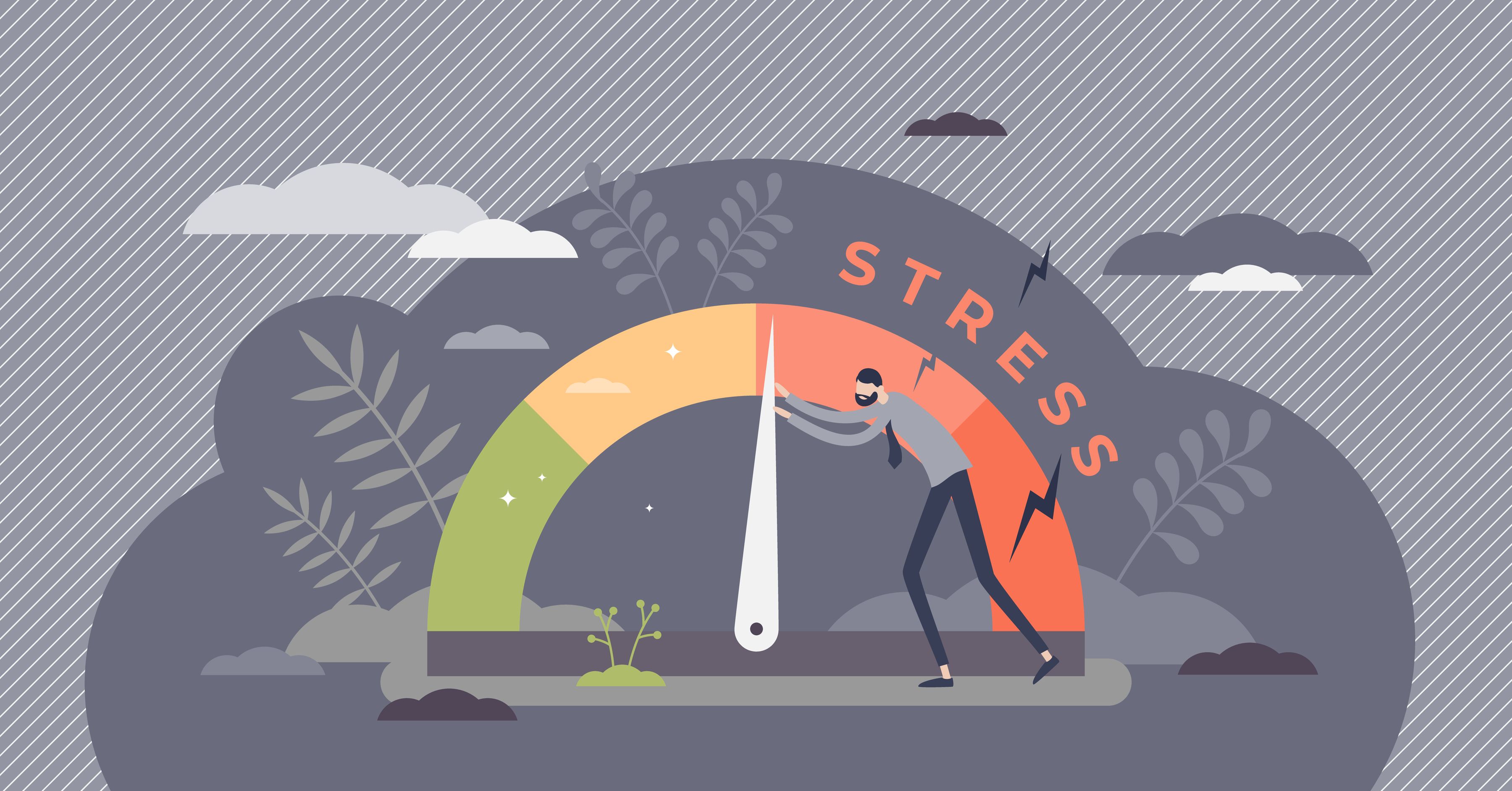
While the occasional stressful day is common enough at the workplace, feeling stressed on a daily basis is not. This is why a crash course on managing stress and anxiety was organised to educate and address the issue of managing mental health.
In July, the Skill-Up with JustLaw series webinar titled Stress and Anxiety at The Workplace focused on stress and anxiety management.
This session aimed to help participants identify what precisely, triggered their stress, as well as how to safeguard their mental health when faced with tough situations.

After establishing a few ground rules, the guest speaker of the event was invited to take the reins.
Ms. Dhevaania C. Gendsen, an established psychology lecturer, senior student psychologist and registered counsellor (LKM), proceeded to take participants through an interesting journey of understanding their inner psyche and stressors.
Remarking that stress could be found in multiple settings, Ms. Dhevaania proceeded to establish a general definition of mental health and its importance.
In line with this, she also noted just how badly the pandemic affected the mental health of most of the general population, and how the need to carry on with life/work/academics may have contributed to our flagging mental health, and, up to a point, could trigger instinctive reactions of stress or anxiety.
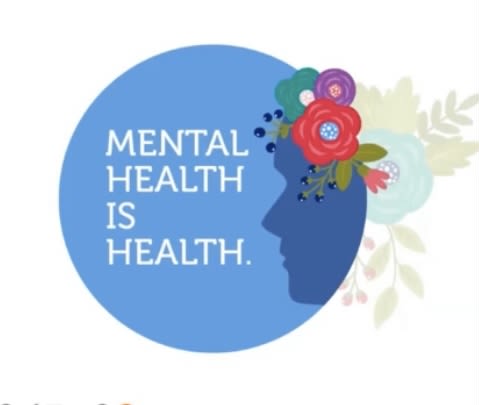
Stress and anxiety, she explained, were 2 different things which exhibited similar patterns- stress is caused by external effects or triggers, while anxiety was a prolonged and persistent emotion. While stress faded with the removal of the trigger, anxiety would remain in place for a while.
Having explained this, Ms. Dhevaania then moved on to explain potential triggers, and how they worked. While occasionally experiencing stress or anxiety was normal (for example, right before a major work presentation), it becomes an issue, she noted, when it becomes excessive and begins to affect you on a personal level- affecting one’s ability to manage their workload and life in general.
Some benefits of work included the opportunity to improve one’s self esteem, provide one with a sense of fulfilment, a chance for social interaction, as well as a source of income. However, as mentioned prior, work could very easily turn into a stressor.
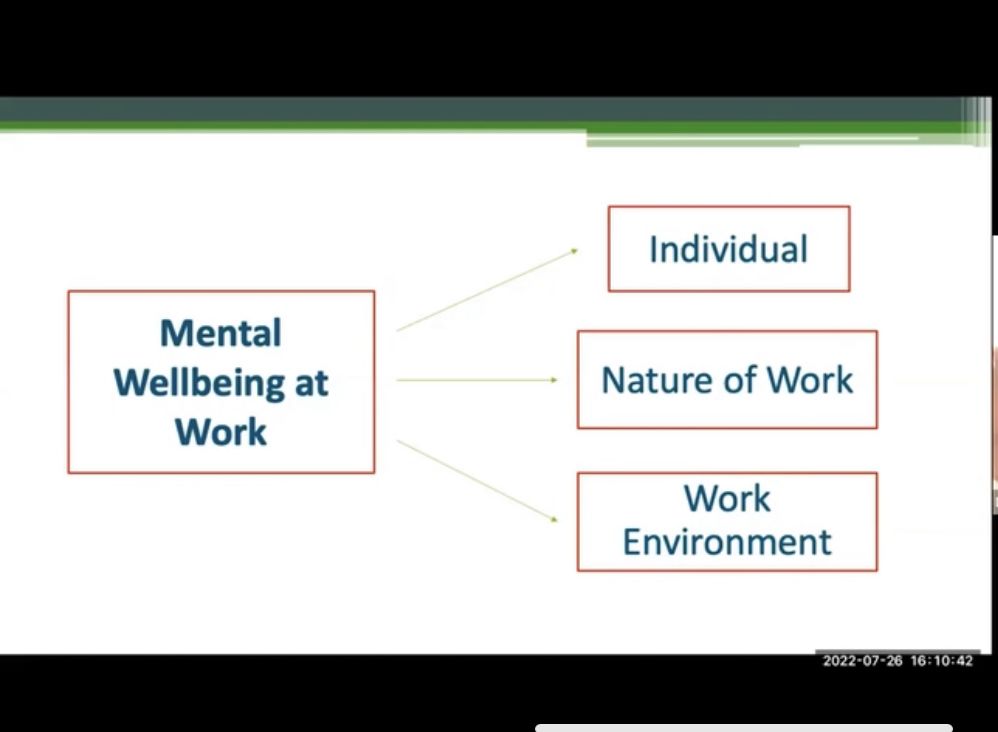
Constant self-doubt, stressful situations and reactions under pressure could all serve to contribute to stress as well- while reacting is normal and human of us, she remarked, sometimes, these reactions could be the result of us reaching what amounted to our mental 'tipping point'. This could be a problem in the long-run as one starts to deteriorate on a professional and personal level.
This would also coincide with a need for control, which differed according to individual exposure to "normal", "abnormal" or "chronically stressful" situations. A personal need for control in a situation, Ms. Dhevaania noted, was often what contributed most to stress- with many forgetting that they do have control over one thing; themselves.
An acceptance of this, she commented, would often play a huge role in negating the frustration and anxiety that stems from this.
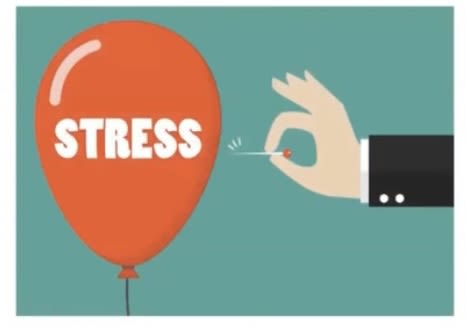
Among the coping methods recommended in overcoming stress was the Stress Bucket. This diagram showed just how one would need to "unload the bucket" by practising mindful habits and ensuring that it would not "overflow", i.e., we do not become mentally overwhelmed.
Getting a good night's rest was also highly recommended, as it gives us the time we need to recover both physically and mentally from our efforts of the day. The importance of properly getting enough sleep was reemphasised, with some of the negative impacts (declining work performance, deteriorating mental health and appearance and a lack of confidence.) highlighted by Ms. Dhevaania.
Self-awareness and understanding how one is perceived also plays a big role in maintaining a healthy lifestyle at work- making it easier to work togteher with others and to work in a team overall.
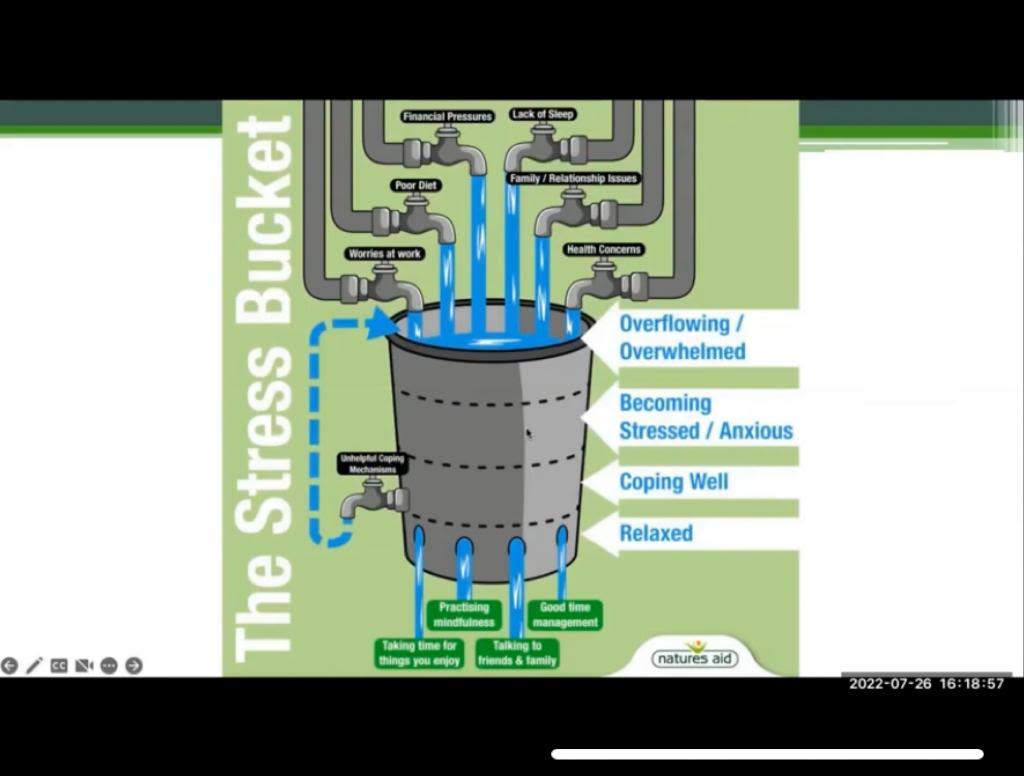
One method of coping with stress and anxiety, she suggested, was by breaking down emotions and stressors via the Cognitive Model. With this, one would take note of one's automatic respond to a situation and sort out their reaction into one of 3 categories; emotional, behavioural and physiological behaviour. This helps to understand what and why one responds in the way that they do, sorting it into a cycle of thoughts, feelings and behaviours. This also then gives us the opportunity to single out negative thoughts and work through them, or challenged them, rather than let them fester.
Practising a healthy lifestyle (covering the trifecta of eating well, getting enough sleep and getting plenty of exercise) was also highly recommeded. The release of endorphins from exercise, coupled with an overall sense of well-being when one was well-rested and adequately energised played a key role in helping negate the negative effects of stress and anxiety in general. (The act of actively choosing to maintain a healthy lifestyle also offers a sense of control of one's daily life, no matter the circumstances.)
Scheduling and planning also helped control stress and anxiety, as it offered a stable framework- lending a sense of routine to our daily life. Ms. Dhevaania also recommended actively scheduling time for oneself in order to give ourselves the time to relax and recuperate from day to day tasks.
Additionally, a framework to assist in decision-making (the better to combat down decision-making induced anxiety) was also provided- where one could analyse the pros and cons of a decision calmly. Alternatively, the ITCH method (Identify the Problem, Think about the solution, Choose a solution and observe How it works) was also recommended fr those who needed a more in-depth study before making choices.

The session ended with a quick Q&A where participants were given the chance to anonymously pose questions of their own to Ms. Dhevaania, to which she cheerfully provided feedback.
Most participants agreed that the session had been a productive one and looked forward to putting her suggestions into practise in the workplace. Kudos to JustLaw for a well-organised and interesting session, and we look forward to more of the Skill-Up seriess in the near future.